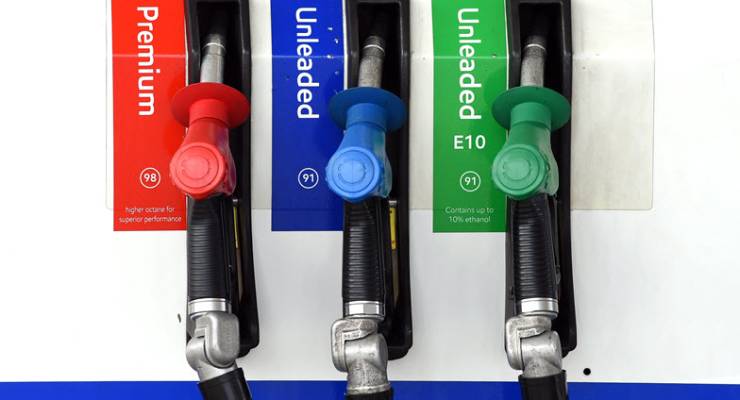
Aussies love to blame colluding petrol companies and high taxes for our high petrol prices. Fair enough — there’s substance to the accusation. We have few fuel retailers, and they seem unusually gifted at getting their prices to move in sync. Meanwhile, excise is a hefty chunk of what we pay at the pump — 41.2 cents per litre on unleaded.
But when petrol prices rose toward $1.70 last month — higher in some places — it became harder to blame domestic factors. They may be substantial, but they are steady. Great swings in petrol prices are almost always due to international meddling, and this time the fault lay with Donald Trump and his plan for Iranian sanctions.
Sanctions and reactions
Trump famously set fire to a deal Obama and six allies signed with Iran, pledging to use his “art of the deal” skills to pressure Iran into a new agreement to end its nuclear ambitions and geopolitical ambitions in the Middle East.
Iran has the world’s fourth largest reserves of oil and government oil revenues make up 50% of its GDP, according to the IMF. Oil sanctions are therefore a big part of the Trump pressure tactics. Trump’s plan sent prices for West Texas Intermediate (a major kind of oil used as a price benchmark) over US$75 a barrel in October.
The US sanctions were going to target foreign shipping companies and banks working to export Iranian oil. They have been in prospect all year, and that has been enough to dramatically cut Iranian oil exports from an estimated rate of 2.5 billion barrels a year to 1.5 billion barrels a year as buyers prepared for the rule to come in.
But when Trump’s new sanctions regime officially came into effect on Monday this week they included an unexpected concession — and that is good news for those of us who buy fuel.
The sanctions included waivers — China, India, South Korea, Japan, Italy, Greece, Taiwan and Turkey would be permitted to keep buying oil from Iran. Those are some big customers, taking three-quarters of Iranian oil.
South Korea immediately announced it would import 4 million barrels a month from Iran. This was a shock to the oil price. West Texas Intermediate sank to $62 a barrel — a fall of nearly 20% from its peak last month.
“I could get the Iran oil down to zero immediately but it would cause a shock to the market. I don’t want to lift oil prices,” Trump said. And his waivers have now provided a shock in the other direction. Australian petrol prices have begun to recede, to between $1.50 and $1.60 a litre in Melbourne. But our prices lag foreign markets and can be expected to fall further in coming days.
So when you stick the fuel nozzle into the rear flank of your car and watch the numbers spin more slowly than last time, thank whatever brilliant policy officials in the American State Department convinced the US President to not ramp up sanctions to maximum immediately.
What effects will this have?
High petrol prices are the last thing Australia needs from an economic perspective. Petrol prices operate a bit like interest rates, soaking money from our pockets and reducing spending elsewhere in the economy. While petrol prices may not be the largest part of household budgets, they are visible, memorable and salient. Given the RBA is very reluctant to cut interest rates, it would love for falling petrol prices to help loosen up consumer spending.
They will get their wish for now, but the exemptions for importing Iranian oil expire after 180 days. If Trump decides not to extend the exemptions, petrol prices could surge again in May 2019. That would be particularly unfortunate timing for Australia’s incumbent government, which will likely be in election campaign mode at the time.
The next six months of lower prices at the pump might yet be a blip.








To begin : you have not made an argument as to why “Trump is to blame”. Secondly, the adoption of the Yankee architectural model (requiring a car and trucks for freight) does reward the oil companies – at least for now, until Public transport attains the upper hand (if it every does) and the advent of electronic cars. Within a few decades the “oil thing” will affect only marine and aviation.
A chat by Trump, with MBS would effect a decline in price with OPEC so there isn’t a great deal to become concerned about Jason
.
If memory serves. it was Frazer who insisted that we pay the international price for oil when we were producing well in excess of 75% domestically – great for the 7 Sisters & Treasury.
Strangely, he also gave CSIRO the task of investigating the production of ethanol (through the delightfully named NERD).
It was to guestimate cost using various feedstocks – cellulose from crop residue, woodchips (hey, in was the mid 70s, all those damned trees clogging up the landscape), waste paper & sugarcane.
Unsurprisingly sugar was far & away the most economic and was cheaper than the newly hiked petrol.
Nothing was ever heard of the report many years ago again.
I’m just sorry that I lost my copy of it to a bush fire – damned trees.
Yes, quite A.R.I ought to have added that the frackers are, thankfully, out of the picture. A paradox for Trump (or, rather a dilemma) but Trump
would prefer a comfortable domestic price (despite US self-sufficiency) to pandering to frackers.
I get the distinct feeling that there will be a miraculous reduction in the cost at the pump as more and more sensibly priced electric vehicles become available. Some discussion then about recharging options etc. would be welcome. Focus on fuels which as Kyle points out, will largely be limited to aviation and marine seem a bit near term.